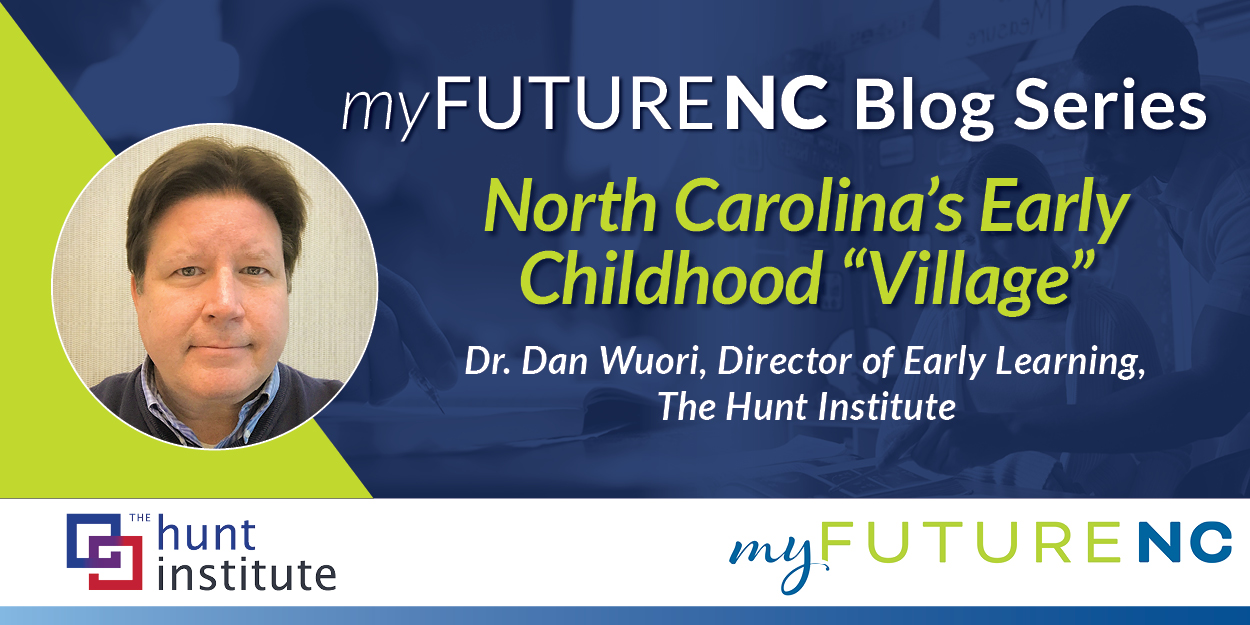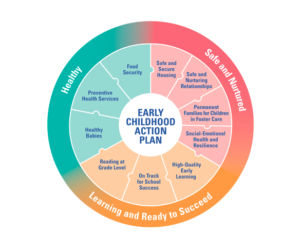

August 7, 2019

From a developmental standpoint, the expression “it takes a village to raise a child” couldn’t be more true. While the role of parents remains paramount, the optimal development of young children relies not only on interactions within the home, but also on the presence of safe and healthy environments across childhood. Kids thrive when nurturing, supportive relationships are just as common in their schools, places of worship, and communities as they are in their homes. And everyone can play a part.
The same holds true at the population level. As states strive to advance the well-being of babies and toddlers, it’s widely accepted that no agency or program can, by itself, meet the complex needs of young children and their families. This is why we in early childhood often describe the work of states in terms of “systems.” By harnessing the power of collaboration between public agencies and private and community-based stakeholders, the best state systems produce outcomes even greater than the sum of their individual parts.
As North Carolina sets its sights on the postsecondary attainment goal established by the myFutureNC Commission for 2030 and beyond, the state can point to its early childhood system as a particular source of pride.
As a longtime observer of the state, I have been consistently impressed by both the diverse array of stakeholders and the Tar Heel State’s ability to work across agency and organizational lines for the betterment of kids.
 Perhaps nowhere has this point been better illustrated than with the creation and implementation of the North Carolina Early Childhood Action Plan. Initiated pursuant to an executive order by Governor Cooper in 2018, the directive called upon the NC Department of Health and Human Services to work with the NC Early Childhood Advisory Council and others to create a cohesive and collaborative public-private vision for young children.
Perhaps nowhere has this point been better illustrated than with the creation and implementation of the North Carolina Early Childhood Action Plan. Initiated pursuant to an executive order by Governor Cooper in 2018, the directive called upon the NC Department of Health and Human Services to work with the NC Early Childhood Advisory Council and others to create a cohesive and collaborative public-private vision for young children.
The resulting product – which included the direct involvement of more than 350 stakeholders and gathered the input of over 1,500 additional North Carolinians – sets collaborative early childhood benchmarks for achievement by the year 2025 and established shared stakeholder accountability to achieve statewide goals for young children from birth through age 8.
It’s a remarkable document, born of a type of cross-sector collaboration many states can only dream of. But it’s little surprise to me that if any state could pull this off, it’s North Carolina – where our namesake and Foundation Chair Governor Jim Hunt had the foresight to create Smart Start, the nation’s first public-private grassroots early childhood initiative, in 1993.
The Hunt Institute works with many outstanding early childhood partners in North Carolina – from Smart Start and the NC Partnership for Children, NC Child, the NC Early Education Coalition, and the NC Early Childhood Foundation, to our policy and research partners at Duke University’s Sanford School for Public Policy and the Center for Child and Family Policy, the amazing storytellers at EdNC, and committed NC-based funders like The Duke Endowment, the Winer Family Foundation, the Brady Educational Foundation, the Pritzker Children’s Initiative, and Child Trust.
As we work towards achievement of an ambitious postsecondary attainment goal, ensuring that babies and toddlers across North Carolina have access to high quality early learning opportunities will be critical.
With the continued collaboration and coordination of government with these private and non-profit stakeholders, the future of the Tar Heel State looks very bright indeed.
Author

Dr. Dan Wuori
Director of Early Learning
The Hunt Institute